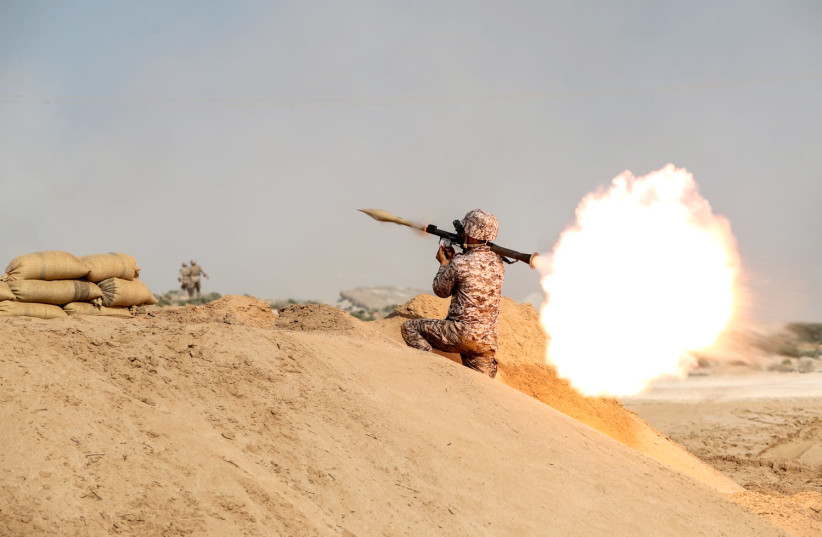The paramilitary groups have a doctrine “designed to outlive the Islamic Republic,” the report explained.

The number of militia proxies for Iran’s Islamic Revolutionary Guard Corps jumped after the 2015 nuclear deal, and they pose the greatest threat to stability in the Middle East, according to research by the Tony Blair Institute for Global Change.
The former UK prime minister called the IRGC-backed paramilitary groups “directly part of the Iranian network of destabilization, seeking to undermine governments and prevent countries from exercising true sovereignty. This campaign is in furtherance of the Islamist ideology of the clerical regime in Iran, and unfortunately it is clear that it surged rather than abated in the years following the JCPOA in 2015.”
The researchers posited that sanctions, or sanctions relief as provided by the 2015 Iran nuclear deal, are not a major factor for stopping these ideological militias.
“These groups will fight for Khamenei regardless of access to financial support, and countering [them] will require a hearts-and-minds counterinsurgency effort,” they said.
Easing sanctions in 2015 did not moderate efforts by Iran-backed militia organizations or lead to their disbanding. Indeed, the number of militia groups reached its peak in the years after the Iran deal, acting throughout the Middle East and in terrorist plots and assassinations in Europe.
Moreover, the paramilitary groups in fact have a doctrine “designed to outlive the Islamic Republic,” the report explained. “This means that should the clerical regime collapse, the IRGC could continue to advance the militia doctrine, albeit in an insurgency mode.”
The report suggested that sanctions targeting the militias’ supply chains could help counter the groups.
Blair argued that diplomacy to curtail Iran’s nuclear program is necessary, but any agreement should “act as a comprehensive brake on those destabilizing activities, and be done in a way which commands support across the region and gives reassurance to Western allies that the West stands with them in their fight against extremism from whatever quarter it comes.”
The institute launched an online tracker showing how the IRGC spreads its ideology around the world, undermining international security through a network of militias and soft-power organizations. It identified 194 IRGC operations in 51 countries and five continents since 1979.
The report found that there are different categories of Iran-backed militias, including independently founded grassroots militias, but that most are groups manufactured by the IRGC, of which Hezbollah is considered the gold standard.
Militias created by the IRGC are instrumental in Iran’s military actions in Syria, Iraq and Afghanistan. The IRGC arms, trains and funds these proxies, as well as invests in indoctrinating and radicalizing their members via Iranian organizations abroad.
The groups share the Iranian regime’s ideology that the Ayatollah Khamenei has “absolute authority over Shia Muslims as God’s representative on earth,” and fight for his “ideological goal of creating a pan-Shia state and eradicating Israel.”
The researchers recommended more comprehensive counterinsurgency and counterterrorism measures against the IRGC and its major militias.
“A full-scale ‘hearts and minds’ counterinsurgency effort may now be needed to counter the ‘soft power’ network which the Islamic Republic has developed and dismantle the threat of Shia militancy in the region,” they wrote. “This means as well as contesting the IRGC’s hard power militia assets, policies should aim to sanction and dismantle the infrastructure Iran has built to sustain these groups, such as the soft-power organizations that are complicit in the IRGC’s militancy.”
That would include monitoring and potentially sanctioning organizations like Al-Mustafa University and the Imam Khomeini Relief Foundation, which play a pivotal role in recruiting and radicalizing foreign fighters and allow a cover for its operations abroad.
As reported by The Jerusalem Post
